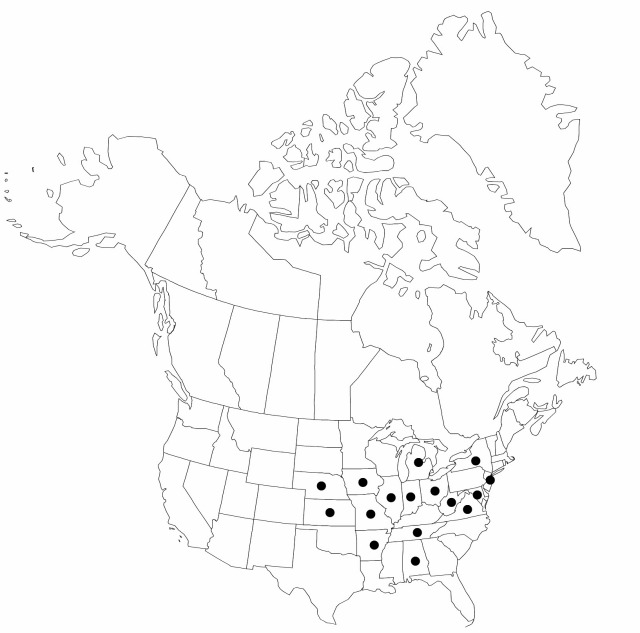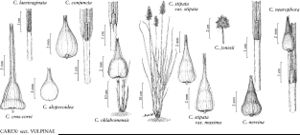Carex conjuncta
Ill. Carex, 122, plate 392. 1862.
Plants with basal sheaths of previous year persistent as linear fibers. Culms to 80 cm × 3.5 mm, scabrous abaxially. Leaves: sheaths all with blades, fronts rugose, red-brown spotted, veinless, apex hyaline, colorless, fragile, convex, entire; ligules rounded, 7 mm, free limb to 0.5 mm; blades not epistomic, to 75 cm × 8 mm. Inflorescences densely spicate, cylindric, elongate, with 8–12 branches, 3–7 × 2 cm; proximal internode to 15 mm. Scales hyaline. Perigynia green with green veins, 3–5-veined abaxially, veinless adaxially, to 4.5 × 2 mm, base spongy on both sides, not distended proximally, rounded; stipe to 0.3 mm; beak to 1.8 mm, serrulate. Achenes ovate, 2.2 × 1.4 mm; stalk to 0.2 mm; persistent style base cylindric.
Phenology: Fruiting Jun.
Habitat: Seasonally saturated soils in wet meadows, openings in alluvial woods, upper borders of tidal marshes, stream banks
Elevation: 0–1500 m
Distribution

Ala., Ark., Ill., Ind., Iowa, Kans., Md., Mich., Mo., Nebr., N.J., N.Y., Ohio, Tenn., Va., W.Va.
Discussion
Selected References
None.
